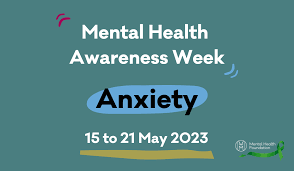 The idea of perfectionism is fairly easy to understand; striving to do everything in a way which is perfect, flawless, without error. And I’m sure we all know people who are perfectionists, for whom second-best simply will not do. Our pursuit of perfectionism seems harmless enough and, is there anything wrong with wanting everything to be just right?
The idea of perfectionism is fairly easy to understand; striving to do everything in a way which is perfect, flawless, without error. And I’m sure we all know people who are perfectionists, for whom second-best simply will not do. Our pursuit of perfectionism seems harmless enough and, is there anything wrong with wanting everything to be just right?
Thomas Curren and Andrew P. Hill published in 2017, “Perfectionism Is Increasing Over Time: A Meta-Analysis of Birth Cohort Differences From 1989 to 2016”. Their research showed that from 1989 to 2016 there was a significant increase in self-orientated, socially prescribed and other-orientated perfectionism. In other words, we are demanding more of ourselves, peer pressure demands more of us, and factors external to us are also expecting more. Again, is there anything wrong with wanting ever better?
 The answer, it would seem, is that there is a lot wrong with this perpetually increasing push for perfection. There is a year-on-year increase in the number of people experiencing and reporting negative mental health issues, which appears to be disproportionately affecting young people. However, the rest of us are far from immune. Advertising, the media, social media; all seem to be promoting an increasingly glossy view of the world to which many of use simply cannot aspire. This surely has to take its toll, which the work of Curren and Hill confirms.
The answer, it would seem, is that there is a lot wrong with this perpetually increasing push for perfection. There is a year-on-year increase in the number of people experiencing and reporting negative mental health issues, which appears to be disproportionately affecting young people. However, the rest of us are far from immune. Advertising, the media, social media; all seem to be promoting an increasingly glossy view of the world to which many of use simply cannot aspire. This surely has to take its toll, which the work of Curren and Hill confirms.
 This week is #MentalHealthAwarenessWeek and the theme this year is #anxiety. Anxiety does, of course, have many causes, and its effects can be from the mild to the completely and devastatingly overwhelming. It affects adults and children alike. Indeed, figures from multiple sources suggest that around 10% of children and anything from 20% to 50% of adults experience some level of anxiety at any one time. While anxiety may be manageable by some, the numbers indicate a significant group of people, children and adults, whose life choices are limited and affected by anxiety.
This week is #MentalHealthAwarenessWeek and the theme this year is #anxiety. Anxiety does, of course, have many causes, and its effects can be from the mild to the completely and devastatingly overwhelming. It affects adults and children alike. Indeed, figures from multiple sources suggest that around 10% of children and anything from 20% to 50% of adults experience some level of anxiety at any one time. While anxiety may be manageable by some, the numbers indicate a significant group of people, children and adults, whose life choices are limited and affected by anxiety.
Anxiety has been a recurring theme for many of the people I have met during my working life. I have witnessed the effects of anxiety and I consider myself fortunate to be able to generally manage the anxiety that I from time-to-time experience. As a coach and trainer, I have created coaching packages and sessions for adults and children who are experiencing generalised anxiety, anxiety linked to specific situations and events, and phobias. And if you want to find out more about what I offer in this area, click here.
 The good news is that there are several steps that we can all take to improve our mental wellbeing, irrespective of the causes. They all take practice, and they all take time to have an effect. It’s about perseverance and playing the long game. And, most importantly, it’s about taking each step and doing it to the best of your ability. Forget perfection. Do your best. Do your best with what you’ve got.
The good news is that there are several steps that we can all take to improve our mental wellbeing, irrespective of the causes. They all take practice, and they all take time to have an effect. It’s about perseverance and playing the long game. And, most importantly, it’s about taking each step and doing it to the best of your ability. Forget perfection. Do your best. Do your best with what you’ve got.
Over the next seven days I’ll be posting a range of suggestions, all backed by research, on what can improve our sense of mental wellbeing. Do what you can. Practise. Do them every day if you can.
It is, therefore, time to stop. Time to reflect. Time to work out who we really want to be. And all we really need to ask, no, demand, is for each of us to be the very best version of ourselves. Nothing more and nothing less. I know I can do that. And you know that you can too, don’t you?

